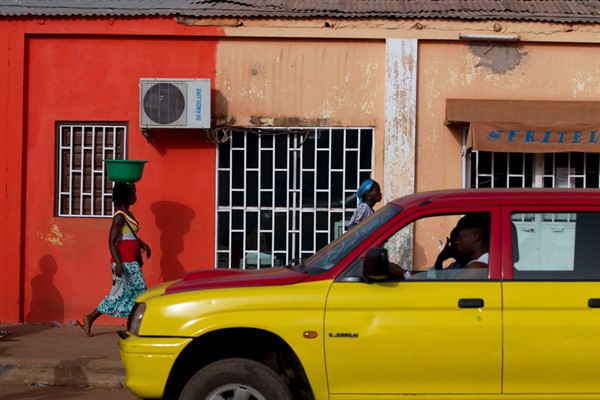The announcement in late April that Guinea-Bissau’s prime minister, Nuno Gomes Nabiam, and four other senior government officials had tested positive for the coronavirus was just the latest crisis for the fragile West African state. Guinea-Bissau has experienced four coups—the most recent one in 2012—and 16 attempted coups since it gained independence from Portugal in 1974.
More recently, the country has been mired in instability since a disputed second-round presidential election last December. The National Electoral Commission has declared that Umaro Sissoco Embalo, a retired military officer and former prime minister, won that poll with 53.6 percent of the vote. But Embalo’s rival, the pro-reform Domingos Simoes Pereira of the ruling PAIGC party, who is also a former prime minister, has alleged fraud, saying that at some polling stations the total votes cast exceeded the number of registered voters.
In the first round of the election in November, Embalo took only 28 percent of the vote to Pereira’s 40 percent. But since then, Embalo has assembled a broad coalition of support among the country’s military and other key power brokers in the political elite.

